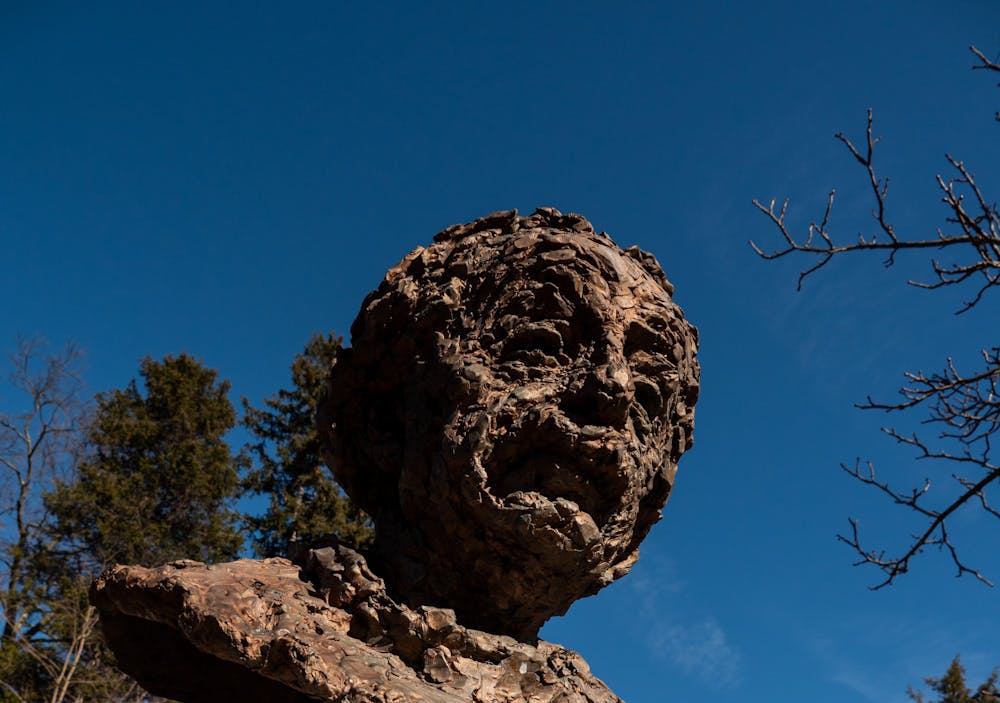On Oct. 18, 1933, The Daily Princetonian reported on the arrival of a new guest to campus: Albert Einstein. Six years before the outbreak of World War II, Einstein and his wife fled persecution in Nazi Germany, arriving to Princeton in secret on the night of Oct. 17. Einstein went on to become one of the inaugural faculty members at the Institute for Advanced Study.
Perhaps everything that can be said of Einstein has been — by writers far more eloquent than myself. He’s the father of modern physics. He’s “the most renowned, and most recognizable, scientist of the twentieth century — and possibly of all time,” in the words of the description of a history course being offered this spring. “His ideas have inspired generations of physicists and mathematicians at Princeton and around the world,” as the University wrote in 2016.
To this day, Einstein’s legacy lies at the bedrock of what it means to call yourself a Princetonian.
My roommate, an Orange Key tour guide, reminds a new flock of aspiring students each week that if they were to successfully gain admission, they may one day find themselves sitting for a lecture in Frist Campus Center Room 302, restored to look precisely the way it did when Einstein taught from its lectern. My father, a scientist and Jewish immigrant himself, told me when he dropped me off freshman fall that he still couldn’t quite believe that each day I spent here, I would get to walk in the footsteps of thinkers like Einstein.
In the first special issue of the 146th Board, we celebrate the 100th anniversary of the year Einstein received a Nobel Prize.
In celebrating Einstein’s enduring legacy on campus, we highlight the historic number of Princeton-affiliated leaders who were awarded Nobel Prizes this past year and sit down with thinkers like Maria Ressa ’86 and chemistry professor David MacMillan; we dive deep into the myth-making around Einstein’s role in the growth of Jewish student life; we trace how the physicist is commemorated both around town and on campus; we tell the story of the sole Einstein “museum” in the country; and we spotlight some of the most significant scientific advances being made on campus today.
In every section — from podcast and opinion to features and photo — the ‘Prince’ has come together not only to mark this centennial anniversary, but to use it as a springboard for delving into the beautiful work of students, alumni, and faculty members in the fields of science, technology, engineering, and mathematics.
For more than 100 years, some Princetonians have stood at the forefront of scientific discovery. This week, we ask our readers to join us in celebrating their stories.

Marie-Rose Sheinerman is the Editor-in-Chief of the ‘Prince’; this letter represents her views alone. She can be reached at eic@dailyprincetonian.com.









